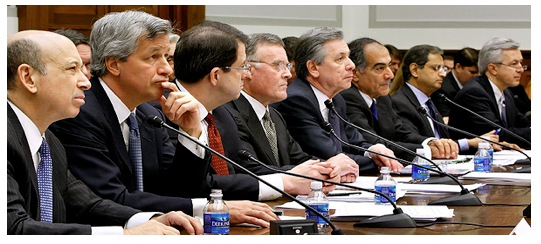TALKING ECONOMICS - Those who follow the rants from our business leaders and their allies in politics and the media have been struck by a disquieting cry in recent months. We have been repeatedly told that, even though we have more than 25 million people unemployed or underemployed, businesses are unable to find qualified workers.
For example, last week New York Times columnist Thomas Friedman took us [link] to Illinois, where Doug Oberhelman, the CEO of Caterpillar, one of the largest companies in the country, complained that he could not find qualified hourly workers for his manufacturing facilities. Oberhelman went on to complain that he also could not find engineering service technicians, or and even welders.
Friedman also recounted a conversation with Chicago's new mayor, former Obama chief of staff Rahm Emanuel. According to Friedman, Emanuel complained about "staring right into the whites of the eyes of the skills shortage." Friedman recounts a story from Emanuel about two young CEOs in the health care software business who claimed that they have 50 job openings today, but can't find the people.
There are many other accounts like the ones in Friedman's column, of businesses who find their growth prospects stunted by their inability to hire good workers. Two parts to this story should bother people.
First, in spite of all the complaints in the media about businesses not being able to find good workers, this problem doesn't seem to show up in the data. According to the Bureau of Labor Statistics (BLS), the overall ratio of job openings to existing jobs is just 2.3 percent. This is down by almost a third from its pre-recession level.
Mr. Oberhelman's experience at Caterpillar doesn't seem to be common among his peers; the job opening rate in manufacturing is just 2 percent. Even in professional and business services, the category that would likely include the workers that the software execs wanted, the job opening rate is just 3.5 percent, down by more than 25 percent from pre-recession levels.
As a group, employers also don't seem to see inadequate worker skills as a problem when asked in surveys. The National Federation of Independent Businesses has been asking its members [link] about the biggest problems they face for more than a quarter century. In the most recent survey, only 6 percent listed labor quality as one of their top problems. This is up from the 3 percent at the trough of the downturn, but down sharply from the 24 percent peak reached more than a decade ago.
While the experience of CEOs cited by Friedman might appear to be atypical since it is not reflected in the data, there is another aspect to the problem that is even more disconcerting.
These CEOs apparently do not know how a business is supposed to respond to the inability to find qualified workers.
According to standard economics, when businesses can't fill job openings, they are supposed to offer higher wages. If these businesses offered higher wages, then they could lure away workers from their competitors. They may also be able to attract workers from other states, or even other countries.
Certainly there are workers somewhere in the world who have the skills that are needed to work at Caterpillar or at software firms run by Mr. Emanuel's friends. If these CEOs raised wages high enough, then these workers would be willing to work for their companies.
However, for some reason, they have not chosen to raise wages to the market clearing level, and, therefore, can't get the workers they want. Apparently, these CEOs do not know how to raise wages.
This inability to raise to wages is also reflected in the data. There is no major occupation group that has seen substantial increases in real wages over the last decade. Even college graduates as a group (excluding those with a postgraduate degree) have not seen an increase in real wages over the last decade. This indicates either that there is no problem of skills shortages, or that companies are increasingly being run by CEOs who do not know how to increase wages.
Since it would be rude to imply that CEOs are not being honest when they complain about the lack of skilled workers, we should assume that they don't know how to raise wages. This is a problem that could be easily remedied. The government could offer short courses to CEOs and other top executives that would teach them how to raise wages and why this would be beneficial to their firms.
These raise-waging instruction sessions should not be very expensive; even the thickest CEO could probably learn how to raise workers' wages in a day or two. Most state and local governments could afford the cost, which should be easily repaid in stronger growth when employers learn how to address their skills shortage.
Companies should not have to forego expansion and workers should not have to be unemployed just because CEOs don't how to raise wages. The skills shortage problem can be fixed.
(Dean Baker is a macroeconomist and co-director of the Center for Economic and Policy Research in Washington, DC. He previously worked as a senior economist at the Economic Policy Institute and an assistant professor at Bucknell University. He is a regular Truthout columnist and a member of Truthout's Board of Advisers. This op-ed was posted first at truth-out.org) -cw
Tags: CEO’s, business, jobs, employment, unemployment, Thomas Friedman, Rahm Emanuel, Chicago, Caterpillar, Doug Oberhelman, healthcare, wages, raise wages
CityWatch
Vol 9 Issue 85
Pub: Oct 25, 2011






